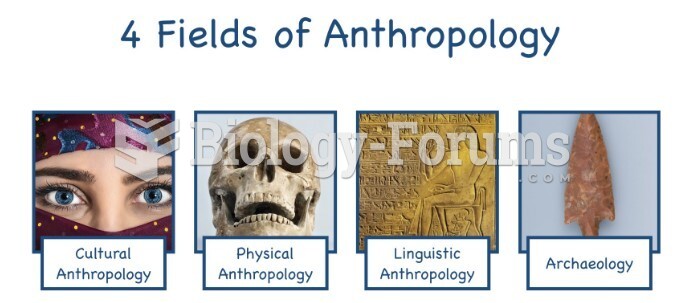|
|
|
Serum cholesterol testing in adults is recommended every 1 to 5 years. People with diabetes and a family history of high cholesterol should be tested even more frequently.
Certain chemicals, after ingestion, can be converted by the body into cyanide. Most of these chemicals have been removed from the market, but some old nail polish remover, solvents, and plastics manufacturing solutions can contain these substances.
Thyroid conditions cause a higher risk of fibromyalgia and chronic fatigue syndrome.
Hip fractures are the most serious consequences of osteoporosis. The incidence of hip fractures increases with each decade among patients in their 60s to patients in their 90s for both women and men of all populations. Men and women older than 80 years of age show the highest incidence of hip fractures.
Pubic lice (crabs) are usually spread through sexual contact. You cannot catch them by using a public toilet.
 One target for expanding medical services involves vaccinations. Only 78 percent of children ages 19 ...
One target for expanding medical services involves vaccinations. Only 78 percent of children ages 19 ...
 U.S. adults from 25 to 74 years report that the largest proportion of their daily stressors arise ...
U.S. adults from 25 to 74 years report that the largest proportion of their daily stressors arise ...





